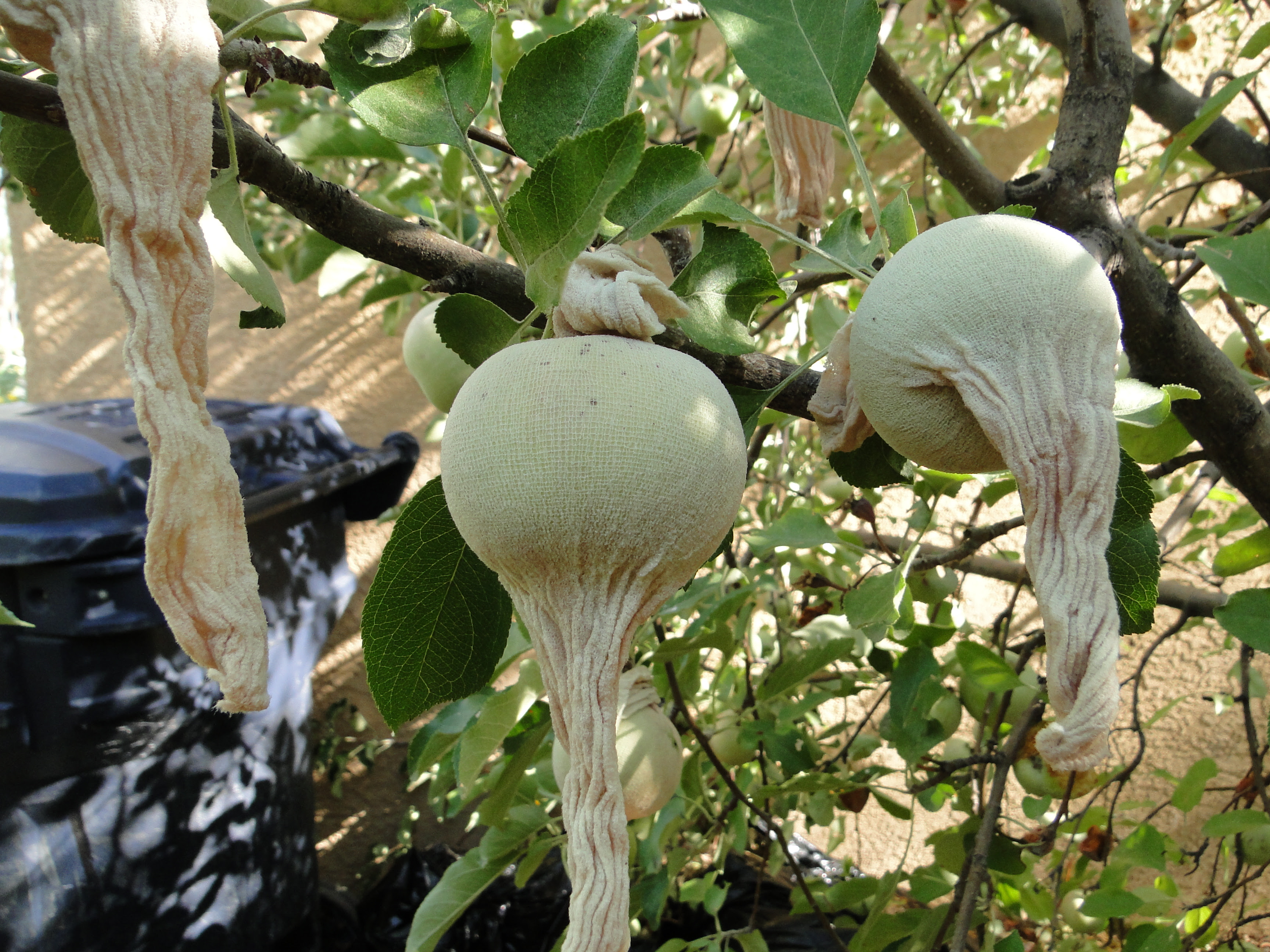Try the simple, organic method of bagging fruit to protect your fruit tree from pests and diseases! This technique is most commonly used for apples and pears and can help against such threats as codling moth, curculio, apple maggot, apple scab, and other threats to a quality harvest. Bagging may even help deter birds and squirrels.
Shortly after the first fruits form on your tree (when they are about pea-sized), it is best to thin the fruits by removing all but the biggest, strongest fruits on each cluster. This allows the fruit to grow larger, and encourages a bloom the following year. Apples are ready to be thinned when they reach approximately 1/2 to 3/4 an inch in diameter. After thinning your fruit, it is then ready to be bagged.
FRUIT BAGGING OPTIONS
There are an array of options when it comes to bagging fruits. Plastic ziplock bags and brown paper bags can be used to protect your fruit and are readily available. Additionally, there are specialized Japanese fruit bags that can be ordered online, or nylon mesh bags that may be better to use for softer fruits. In most cases, the bags can be reused the next year!
If using a plastic ziplock bag, cut the bottom corners of the bag in order to ensure water drainage, and fasten the zipper around the stem of the fruit. Be sure to fasten it securely so that it doesn’t become too loose. Plastic bags are not recommended for stone fruits like plums and peaches, but you can try using fabric or paper bags attached with a twist tie around the stem. The sun can be an important factor to giving fruits their wonderful color. If the bags you are using aren’t transparent, be sure to remove them three weeks before harvesting to ensure colorful fruit!
Bagging your fruit is a simple way to prevent many common problems encountered during the growing season. While it may be a bit tedious, it can be well worth the effort for a small orchard. Try this simple and inexpensive way to organically fend off insects and disease, and let us know the results!
http://www.seattletreefruitsociety.com/maggot-barriers
Articles about fruit bagging:
http://gordosoft.com/orchard/bagging.htm
http://www.homeorchardsociety.org/growfruit/apples/bagging-apples/
http://magazine.uc.edu/issues/0408/japanese_apples.html
http://www.seattletreefruitsociety.com/maggot-barriers
http://homeguides.sfgate.com/bag-tree-fruit-56567.html
https://entomology.ca.uky.edu/ef218
http://www.youtube.com/watch?v=zRQxDnYJRAg
http://www.youtube.com/watch?v=IUIETl-QxDw
